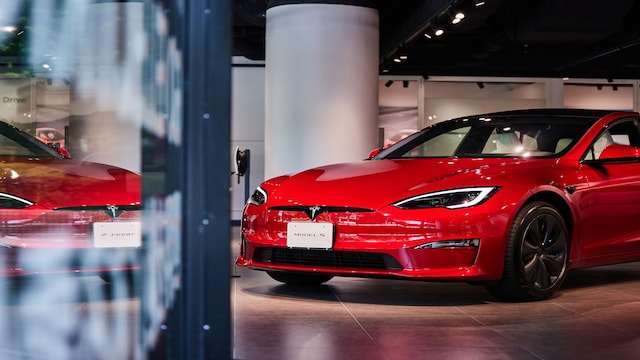Our Terms & Conditions | Our Privacy Policy
India Opens Flagship EV Policy to Global Carmakers, Tesla Opts Out
India has officially opened its doors to the world’s leading electric vehicle (EV) manufacturers with the launch of its flagship Scheme to Promote Manufacturing of Electric Passenger Cars in India (SPMEPCI). Announced on June 2, 2025, this policy is designed to transform India into a global hub for EV innovation and manufacturing, supporting the nation’s net zero emissions target by 2070 and boosting local employment and production.
The scheme offers a major incentive: global automakers can import completely built electric vehicles (CBUs) valued at $35,000 or more at a significantly reduced customs duty of 15%, down from the standard 70%, for up to five years. This benefit is conditional on manufacturers committing at least $486 million (about ₹4,150 crore) in local EV manufacturing facilities within three years. The government’s vision is to attract substantial foreign investment, facilitate technology transfer, and build a robust domestic EV supply chain.
Global Carmakers Show Interest, But Tesla Opts Out:
The policy has generated strong interest from several global automotive giants. According to Union Minister for Heavy Industries HD Kumaraswamy, companies like Mercedes-Benz, Volkswagen, Skoda, Hyundai, and Kia have already expressed their intent to participate in the scheme. These brands are expected to leverage the reduced import duties to introduce premium EV models to the Indian market while simultaneously investing in local production.
However, Tesla, the world’s most recognized EV brand, is notably absent from this wave of interest. Despite years of speculation and negotiations, Tesla has decided not to participate in the SPMEPCI scheme at this stage. Government officials have indicated that Tesla’s current focus is on establishing showrooms and sales operations in India rather than committing to manufacturing facilities. This decision comes after Tesla previously criticized India’s high import duties and lobbied for policy changes to support its entry.
The absence of Tesla is significant, given its global influence and the anticipation surrounding its potential entry into India. Still, the government remains optimistic, emphasizing that the scheme is open to all global players willing to meet the investment and manufacturing requirements.
Policy Details: Incentives, Conditions, and Market Impact
The SPMEPCI scheme is structured to ensure only serious, long-term investors benefit. To qualify, automakers must:
-
Invest a minimum of $486 million (₹4,150 crore) in local EV manufacturing within three years.
-
Import up to 8,000 EVs annually at the reduced 15% customs duty, with the quota carrying over if unused.
-
Begin domestic EV production within three years of approval, achieving 25% domestic value addition (DVA) within three years and 50% within five years.
-
Meet escalating revenue requirements: ₹5,000 crore in the fourth year and ₹7,500 crore in the fifth year, or face penalties for shortfalls.
By setting these benchmarks, the government aims to weed out non-serious applicants and ensure that the policy results in real manufacturing activity, job creation, and technology transfer.
The policy is expected to intensify competition in India’s EV market, which is currently dominated by domestic players like Tata Motors and Mahindra Electric. With global brands entering, Indian consumers could see a wider range of models and price points, especially in the premium segment. The influx of investment is also likely to boost local component manufacturing, research and development, and the broader EV ecosystem.
Challenges, Opportunities, and the Road Ahead:
While the policy is ambitious, challenges remain. The requirement for substantial upfront investment and rapid localization may deter some automakers, especially as global EV demand cools in other markets. Additionally, the infrastructure for charging and servicing EVs in India is still developing, which could impact adoption rates.
Despite these hurdles, the government is confident that the scheme will help India emerge as a premier destination for automotive manufacturing and innovation. The focus on high-value imports and local manufacturing is expected to create jobs, foster sustainable mobility, and support India’s broader economic and environmental goals.
Applications for the scheme are expected to open soon and will remain available until March 15 next year. As the policy takes effect, all eyes will be on how global carmakers respond and whether Tesla might reconsider its position in the future.
Conclusion:
India’s flagship EV policy marks a turning point for the country’s automotive sector, offering global carmakers a clear path to participate in one of the world’s fastest-growing EV markets. While Tesla’s absence is notable, the strong interest from other international players signals a new era of competition, innovation, and investment in India’s green mobility journey.
Images are for reference only.Images and contents gathered automatic from google or 3rd party sources.All rights on the images and contents are with their legal original owners.



Comments are closed.